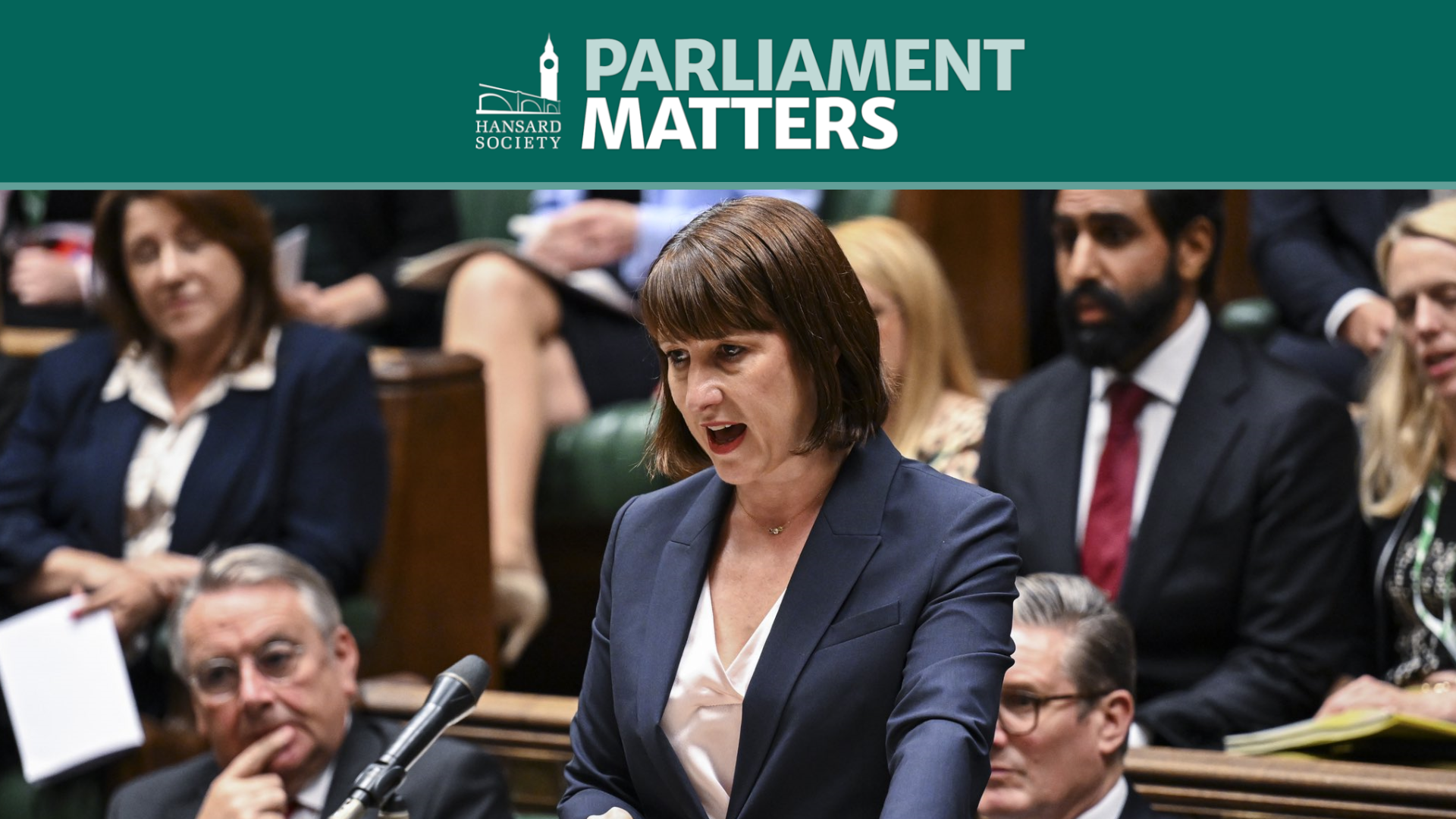You are listening to Parliament Matters, a Hansard society production supported by the Joseph Rowntree Charitable Trust. Learn more at hansardsociety.org.uk/pm.
00:00:17:10 - 00:00:55:14
Welcome to Parliament Matters, the podcast about the institution at the heart of our democracy. Parliament itself. I'm Ruth Fox and I'm Mark D'Arcy. Coming up this week. Money, money, money. Rachel Reeves draws the Commons dividing lines for the coming years. Dividing the spoils. What the share out of select committee chairs tells us about politics to come. And as Westminster prepares to welcome a new generation of parliamentary bag-carriers, a veteran Commons aide reminds them this ain't the West Wing.
00:00:55:16 - 00:01:29:08
But first, Ruth, it's got to be the starting point, I suppose. Rachel Reeves, this big statement to the House about the financial legacy of the previous Conservative government was exactly as billed, really. A massive exercise in pointing the finger of blame and the blame game produced some pretty sparky exchanges with the man she replaced in the Exchequer, Jeremy Hunt, about how much Labour knew about the state of the country's books before the election, and whether or not Rachel Reeves was, in effect, preparing the ground to break some of the promises she'd made about public spending and tax cuts
00:01:29:08 - 00:01:47:19
during that campaign. Yes, 22 billion pound black hole, she claims. Now, unless you've discovered some accountancy skills in the last week that I don't know about, I don't think either of us are in a position to judge who's right and who's wrong in all of this? But it will come out in the wash because eventually they will have to settle the books.
00:01:47:19 - 00:02:08:08
Parliament will have to approve additional spending if necessary if there is this black hole. But it's a pretty serious claim. And as you said, Jeremy Hunt and Rachel Reeves had some fairly harsh clashes. Jeremy Hunt isn't exactly Mr. Ferocious. No, he's normally the kind of person who, alright, can put the dagger in, but in a very sort of parliamentarian kind of way.
00:02:08:13 - 00:02:30:07
But there was visible angst and irritation. And in the middle of the chamber here. But this is central to the politics of the coming months. Now, Labour, if it has to take nasty decisions, wants them to be very firmly blamed on the previous government, not on themselves. And they also need to prepare their troops for those nasty decisions, which will come up in all sorts of Commons votes in the coming months as well.





